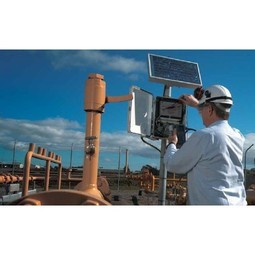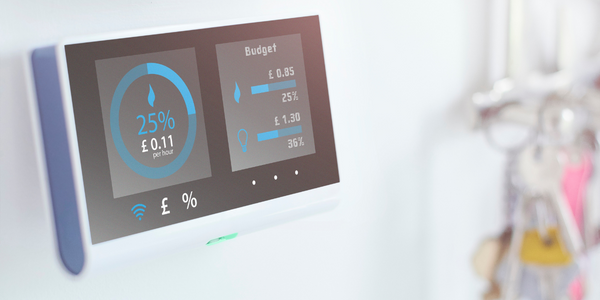Technology Category
- Infrastructure as a Service (IaaS) - Cloud Storage Services
- Platform as a Service (PaaS) - Application Development Platforms
Applicable Industries
- Chemicals
- Utilities
Applicable Functions
- Human Resources
- Maintenance
Use Cases
- Outdoor Environmental Monitoring
About The Customer
Founded in 2006, VTTI B.V. is a global provider of energy storage services. The company stores and distributes gasoline, distillates, chemicals, hydrogen, and fuel oil from petroleum holding terminals. VTTI serves customers worldwide and is one of the world’s fastest-growing independent storage providers for energy and other essential products. With a focus on innovative, sustainable solutions that reduce environmental and carbon footprints, VTTI's terminals are among the most advanced in the world. The company has a combination of ultra-modern greenfield terminals and upgraded facilities, and it loads or discharges around 11,000 vessels, trucks, and trains globally every year.
The Challenge
VTTI, a global energy storage services company, was faced with the challenge of managing and utilizing massive amounts of data generated from its operations. With over 10 million cubic meters of storage capacity located across five continents, the company loads or discharges around 11,000 vessels, trucks, and trains globally every year. This scale of work provides VTTI with unique insight into energy trading and product flows. However, the company needed a way to generate insights from this data and make it readily and effectively available to business stakeholders. The data was also crucial for monitoring pumps and pipes, as well as for engaging in predictive and prescriptive maintenance of the entire infrastructure. VTTI was in need of a solid analytical foundation that could serve use cases in the field of predictive and prescriptive analytics to better manage customer expectations and enable customers to better manage expectations with the rest of the value chain.
The Solution
VTTI found its solution in the Denodo Platform, powered by data virtualization. The company leveraged the Denodo Platform to integrate data for operational use cases as well as IT data sources that span across a variety of functions including finance, maintenance, and human resources. The Denodo Platform also incorporated data from external sources such as those available from city municipalities, port management offices, and weather forecast bureaus. This solution allowed VTTI to consolidate its geographically distributed systems, improving data quality and enhancing data governance by having a single, governable source of enterprise data. The Denodo Platform also reduced the reporting cycle and improved developer productivity, enabling VTTI to make more effective use of its data.
Operational Impact
Quantitative Benefit

Case Study missing?
Start adding your own!
Register with your work email and create a new case study profile for your business.
Related Case Studies.

Case Study
IoT Solutions for Smart City | Internet of Things Case Study
There were several challenges faced: It is challenging to build an appliance that can withstand a wide range of voltage fluctuations from as low at 90v to as high as 320v. Since the device would be installed in remote locations, its resilience was of paramount importance. The device would have to deal with poor network coverage and have the ability to store and re-transmit data if networks were not available, which is often the case in rural India. The device could store up to 30 days of data.

Case Study
Automation of the Oguz-Gabala-Baku water pipeline, Azerbaijan
The Oguz-Gabala-Baku water pipeline project dates back to plans from the 1970’s. Baku’s growth was historically driven by the booming oil industry and required the import of drinking water from outside of the city. Before the construction of the pipeline, some 60 percent of the city’s households received water for only a few hours daily. After completion of the project, 75 percent of the two million Baku residents are now served around the clock with potable water, based on World Health Organization (WHO) standards. The 262-kilometer pipeline requires no pumping station, but uses the altitude differences between the Caucasian mountains and the capital to supply 432,000 m³/d to the Ceyranbatan water reservoir. To the people of Baku, the pipeline is “the most important project not only in 2010, but of the last 20 years.”

Case Study
GPRS Mobile Network for Smart Metering
Around the world, the electricity supply industry is turning to ‘smart’ meters to lower costs, reduce emissions and improve the management of customer supplies. Smart meters collect detailed consumption information and using this feedback consumers can better understand their energy usage which in turn enables them to modify their consumption to save money and help to cut carbon emissions. A smart meter can be defined in many ways, but generally includes an element of two-way communication between the household meter and the utility provider to efficiently collect detailed energy usage data. Some implementations include consumer feedback beyond the energy bill to include online web data, SMS text messages or an information display in consumers’ premises. Providing a cost-effective, reliable communications mechanism is one of the most challenging aspects of a smart meter implementation. In New Zealand, the utilities have embraced smart metering and designed cost effective ways for it to be implemented. The New Zealand government has encouraged such a move to smart metering by ensuring the energy legislation is consistent with the delivery of benefits to the consumer while allowing innovation in this area. On the ground, AMS is a leader in the deployment of smart metering and associated services. Several of New Zealand’s energy retailers were looking for smart metering services for their residential and small business customers which will eventually account for over 500,000 meters when the multi-year national deployment program is concluded. To respond to these requirements, AMS needed to put together a solution that included data communications between each meter and the central data collection point and the solution proposed by Vodafone satisfied that requirement.

Case Study
Honeywell - Tata Chemicals Improves Data Accessibility with OneWireless
Tata was facing data accessibility challenges in the cement plant control room tapping signals from remote process control areas and other distant locations, including the gas scrubber. Tata needed a wireless solution to extend its control network securely to remote locations that would also provide seamless communication with existing control applications.

Case Study
NB-IoT connected smart meters to improve gas metering in Shenzhen
Shenzhen Gas has a large fleet of existing gas meters, which are installed in a variety of hard to reach locations, such as indoors and underground, meaning that existing communications networks have struggled to maintain connectivity with all meters. The meter success rate is low, data transmissions are so far unstable and power consumption is too high. Against this background, Shenzhen Gas, China Telecom, Huawei, and Goldcard have jointly trialed NB-IoT gas meters to try and solve some of the challenges that the industry faces with today’s smart gas meters.

Case Study
British Gas Modernizes its Operations with Innovative Smart Metering Deployment
The UK government has mandated that smart meters are rolled out as standard across Great Britain by end of 2020, and this roll-out is estimated to create £14 billion in net benefits to the UK in consumer energy savings and lower energy generation demand, according to the Oxford Economics report, “The Value of Smart Metering to Great Britain.” While smart-metering systems have been deployed in many countries, the roll-out in Great Britain is unique because it is led by energy retailers, who have responsibility for the Electricity and Gas meters. The decision to have a retailer-led roll out was made by DECC (Department of Energy and Climate Change) to improve customer experience and drive consumer benefits. It has also led to some unique system-level requirements to support the unique local regulatory model.







